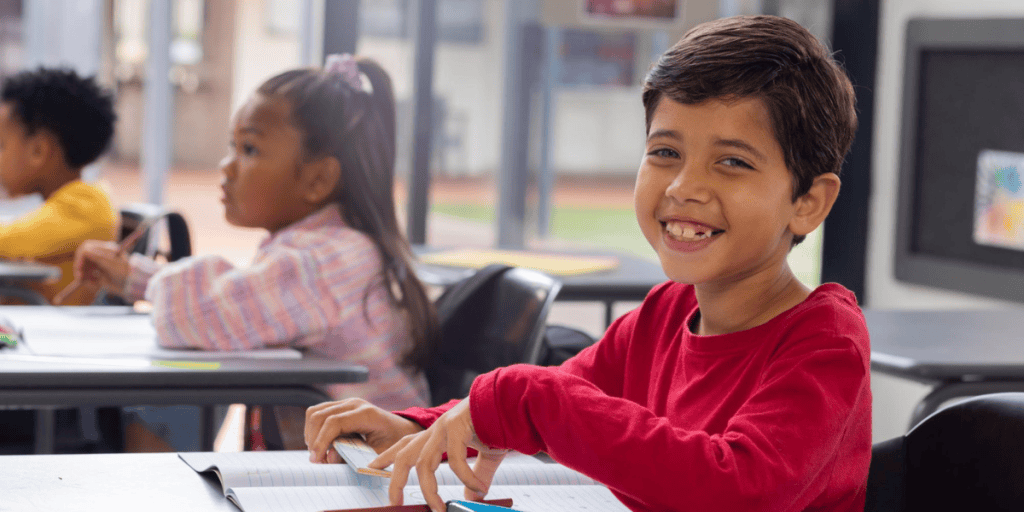The Key to Unlocking Your Kids’ Potential
Kids Soft skills are the cornerstone of success, laying the foundation for a prosperous future. As parents, we aspire to provide our children with every tool necessary to thrive in an ever-evolving world. In this comprehensive guide, we explore the importance of soft skills tailored for your kids’ development and how you can foster these invaluable traits effectively.
Academic excellence alone doesn’t suffice. Employers and educators alike are recognizing the significance of soft skills in personal and professional growth. Understanding and nurturing these skills from an early age can set your child on a path to success, equipping them with the tools needed to navigate life’s challenges with confidence and resilience.
The Importance of Soft Skills for Your Kids
Kids Soft skills encompass a broad range of attributes that contribute to effective communication, emotional intelligence, and interpersonal relationships. Unlike hard skills, which are specific to a particular job or task, soft skills are transferable and applicable across various domains. These skills are vital in shaping your child’s character, enhancing their adaptability, and fostering a positive attitude towards learning and growth.
Developing Soft Skills:
- Effective Communication: Encourage open dialogue and active listening to foster strong communication skills in your child. Engage in meaningful conversations and provide opportunities for them to express themselves freely.
- Emotional Intelligence: Teach your child to recognize and manage their emotions effectively. Encourage empathy, self-awareness, and resilience to navigate life’s ups and downs with grace and composure.
- Problem-Solving Skills: Encourage critical thinking and creativity by presenting your child with real-world challenges. Foster a growth mindset and empower them to approach problems with confidence and resourcefulness.
- Teamwork and Collaboration: Promote teamwork and collaboration through group activities and team-based projects. Encourage cooperation, leadership, and mutual respect among peers to cultivate strong interpersonal relationships.
- Time Management: Instill the value of time management and organization in your child’s routine. Teach them to prioritize tasks, set goals, and manage their time effectively to achieve optimal productivity.
- Adaptability and Flexibility: Embrace change as an opportunity for growth and learning. Encourage your child to embrace new experiences, step out of their comfort zone, and adapt to evolving circumstances with resilience and optimism.
Effective Communication: A Key Element in Kids’ Development
We recognize the crucial role effective communication plays in kids’ development and overall success. Our comprehensive approach focuses on nurturing these essential skills in a supportive and engaging environment tailored to meet each child’s unique needs.
Understanding the Importance of Effective Communication
Effective communication goes beyond verbal exchanges; it encompasses listening, understanding, and conveying thoughts and emotions effectively. For children, developing these skills early on lays the groundwork for success in various aspects of life, from academic achievement to building healthy relationships.
How We Facilitate Effective Communication Skills Development
- Interactive Learning Environment: Our programs provide opportunities for children to engage in interactive activities, discussions, and role-playing exercises designed to enhance their communication skills.
- Encouraging Expression: We create a safe and supportive space where children feel empowered to express themselves freely, fostering confidence and self-assurance.
- Building Empathy: Through storytelling and group activities, we help children understand the perspectives and emotions of others, promoting empathy and compassion.
- Effective Feedback: Our experienced educators provide constructive feedback and guidance to help children refine their communication skills and overcome challenges.
- Real-World Application: We incorporate real-life scenarios and practical exercises to help children apply their communication skills in everyday situations, preparing them for success in school and beyond.
The Benefits of Effective Communication Skills for Kids
- Academic Success: Improved communication skills lead to enhanced academic performance, as children can express themselves clearly and engage more effectively with teachers and peers.
- Social Confidence: Children with strong communication skills are more confident in social settings, making friends easily and building positive relationships.
- Conflict Resolution: Effective communicators are better equipped to resolve conflicts peacefully, fostering a harmonious environment both at home and in school.
- Future Success: Strong communication skills are a valuable asset in the professional world, opening doors to career opportunities and leadership roles.
Kids’ Teamwork and Collaboration: Building Essential Skills for Success
We understand the significance of teaching kids the value of teamwork and collaboration from a young age. Our programs are designed to cultivate these essential skills in a fun and supportive environment, setting children up for success in school, relationships, and beyond.
Understanding the Importance of Kids’ Teamwork and Collaboration
Teamwork and collaboration are not just about completing tasks together; they are about learning to communicate, listen, compromise, and support one another. These skills are vital for success in both personal and professional life, as they enable individuals to work harmoniously towards a common goal, leverage diverse perspectives, and achieve greater outcomes.
How We Encourage Teamwork and Collaboration in Kids
- Group Activities: Our programs incorporate a variety of group activities, such as team sports, art projects, and problem-solving exercises, to foster collaboration and cooperation among children.
- Role-Playing: Through role-playing scenarios, children learn to understand different viewpoints, communicate effectively, and work together to find solutions.
- Peer Learning: We encourage peer-to-peer learning, where children collaborate on tasks and projects, learn from each other’s strengths, and support one another’s growth.
- Emphasis on Communication: Effective communication is key to successful teamwork. We teach children how to express their ideas, listen actively to others, and resolve conflicts peacefully.
- Celebrating Diversity: We celebrate diversity and teach children to appreciate and respect differences among their peers, fostering an inclusive environment where everyone feels valued and heard.
The Benefits of Kids’ Teamwork and Collaboration
- Enhanced Social Skills: Working in teams helps children develop crucial social skills such as empathy, cooperation, and leadership, which are essential for building meaningful relationships.
- Improved Problem-Solving: Collaborative environments encourage critical thinking and problem-solving skills as children learn to brainstorm ideas, consider different perspectives, and innovate together.
- Boosted Confidence: Successfully collaborating with peers boosts children’s confidence and self-esteem, empowering them to take on new challenges and pursue their goals with enthusiasm.
- Preparation for the Future: The ability to work effectively in teams is highly valued in today’s workforce. By fostering teamwork and collaboration in children, we are preparing them for success in their future careers and endeavors.
Join Us in Nurturing Your Child’s Communication Skills Today!
At Core Growth Pivot , we are committed to empowering children with the tools they need to thrive in an ever-changing world. Join us in fostering effective communication skills in your child and setting them on the path to success.




